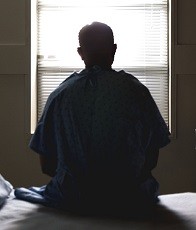Reproduced with permission
Leonie Herx, Ramona Coelho, Sohail Gandhi

As the COVID-19 pandemic dominates the political agenda and strains the country’s health-care systems, the federal Liberals are intent on passing Bill C-7, which proposes to expand medical assistance in dying (MAiD) to those who are not dying.
Proponents say the bill allows choice and dignity for those with chronic illness and disability. However, the bill fails to provide them with the dignity and humanity that comes with good care and access to supports.
We are doctors who witness the struggles that confront our patients and their loved ones every day. Those living on the margins and with disabilities face significant barriers to care though systemic discrimination (ableism) that can make it harder to live a healthy, fulfilling life in community.
As doctors we should be instilling hope, supporting resilience and using our expertise to find creative solutions to address health and well-being. Instead, we would be required to suggest assisted suicide as an option if this bill becomes law.
Spring Hawes, a woman who has had a spinal cord injury for 15 years, said: “As disabled people, we are conditioned to view ourselves as burdensome. We are taught to apologize for our existence, and to be grateful for the tolerance of those around us. We are often shown that our lives are worth less than non-disabled lives. Our lives and our survival depend on our agreeableness.”
A choice to die isn’t a free choice when life depends on good behaviours and compliance to societal norms. Sadly, the medical community can be complicit in this messaging.
Gabrielle Peters, a brilliant writer who has struggled with poverty since her disability, has shared that a health-care professional sat at her bedside and urged her to consider death. This was just after Peters’ partner announced he was leaving her because she was too much of a burden and she no longer fit into the life he wanted.
Doctors can pressure someone to die as in Peters’ situation but also more subtly can confirm a patient’s fears that her life is not worth living and MAiD would indeed be a good medical choice.
Day after day, we participate in a health-care system and a social support system that does not come close to meeting the basic needs of our most vulnerable patients. However, our role as physicians should always be to first advocate that our patients access all reasonable supports for meaningful life with no suffering.
But alas, Canada does not seem to prioritize health care and supports for all, and soon, that lack of support will be pitted against an option to access death in 90 days.
Patients entrust doctors to make ethical decisions every day regarding their care and to make recommendations that are always aimed at promoting health and healing. The core role of medicine is to be restorative, not destructive. Advocating for our patients’ health and well-being is solemn oath we took.
As physicians we help our patients do many things in the context of a trusting, shared decision-making process. Doctors encourage healthy habits. We refuse to prescribe antibiotics when patients have a viral infection, or opioids on demand. We pull a driver’s licence when we have concerns for patient safety and the public good. We refuse to write mask exemptions without good reason. We serve both patient and the common good.
All of this requires courage to not betray the trust society and the patient have bestowed on our profession. Society’s belief in the inherent virtue and ethics of the profession has been the necessary basis of the physician-patient trust. Would you trust your doctor if you thought they didn’t care about your safety and well-being?
While we recognize patients have the right to ask for MAiD, physicians must not be forced to suggest or forced to facilitate this, especially when reasonable options for living with dignity exist. We must continue to offer our patients what is good and practise medicine with integrity.
As Thomas Fung, physician lead for Siksika Nation, a southern Alberta First Nation, said: “Assisted death should be an option of last resort, and not the path of least resistance for the vulnerable and disadvantaged. Conscience protection is needed in this bill, as no one should be forced to participate in the intentional death of another person against their goodwill.”
One of the most important foundations of our Canadian identity is that we are a caring, compassionate country. We are proud of our universal health-care mandate, and we place a high premium on being inclusive and tolerant while working hard toward the accommodation and integration of marginalized and vulnerable members of our community. And yet, if Bill C-7 is allowed to stand without amendments, we will be in serious danger of losing this fundamental element of our Canadian identity.
Ramona Coelho is a family physician in London. Sohail Gandhi is immediate past-president of the Ontario Medical Association. Leonie Herx is division chair and associate professor of palliative medicine at Queen’s University and past-president of the Canadian Society of Palliative Care Physicians. An earlier version of this article appeared in the London Free Press.